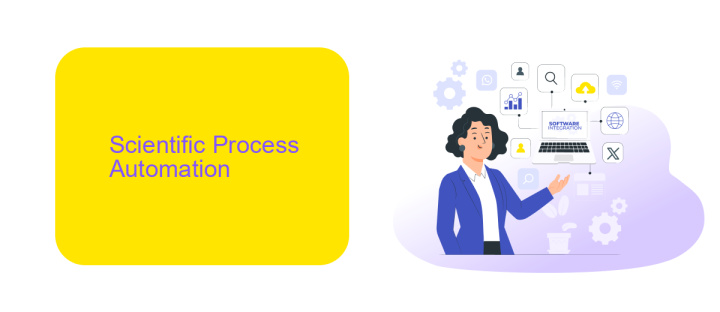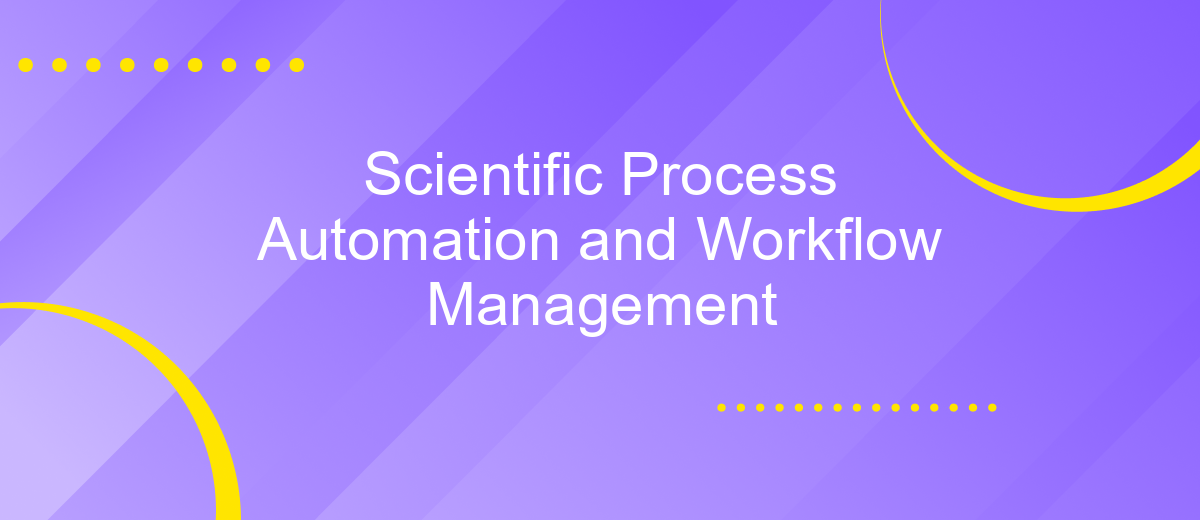Scientific Process Automation and Workflow Management
Scientific Process Automation and Workflow Management are transforming the landscape of research and development. By streamlining complex procedures and integrating advanced technologies, these systems enhance efficiency, reduce human error, and accelerate innovation. This article explores the key components, benefits, and future prospects of automating scientific processes, providing insights into how these advancements are reshaping modern scientific endeavors.
Introduction
The rapid advancement of technology has significantly transformed the way scientific research is conducted. Automation and workflow management have become crucial components in enhancing research efficiency and accuracy. By automating repetitive tasks and streamlining complex processes, scientists can focus more on innovative research rather than administrative duties.
- Improved data accuracy and consistency
- Enhanced collaboration among research teams
- Time and cost savings
- Scalability of research processes
One of the key aspects of scientific process automation is the integration of various tools and platforms. Services like ApiX-Drive facilitate seamless integration, enabling researchers to connect multiple applications and automate data transfer without any coding. This not only simplifies the workflow but also ensures that data is synchronized across all platforms, thereby reducing the risk of errors. As a result, scientific teams can achieve higher productivity and more reliable outcomes.
Scientific Process Automation

Scientific Process Automation involves the use of technology to streamline and optimize scientific workflows. By automating repetitive and time-consuming tasks, researchers can focus on more critical aspects of their work, such as data analysis and hypothesis testing. Automation tools can handle various functions, from data collection and processing to experimental setup and monitoring, thus significantly reducing the risk of human error and increasing overall efficiency.
One of the key components in scientific process automation is the integration of different software and data sources. Services like ApiX-Drive facilitate this by providing a platform for seamless integration between various applications and tools. With ApiX-Drive, researchers can easily connect their data collection instruments, laboratory information management systems (LIMS), and data analysis software, ensuring a smooth and coherent workflow. This not only saves time but also enhances the accuracy and reliability of scientific results.
Workflow Management

Workflow management is a critical aspect of scientific process automation, ensuring that tasks are executed in a seamless and efficient manner. Effective workflow management involves the coordination of various processes, tools, and team members to achieve desired outcomes. By automating workflows, scientists can save time, reduce errors, and enhance productivity.
- Identify and map out all the steps involved in the scientific process.
- Select appropriate tools and software to automate repetitive tasks.
- Integrate various systems to ensure smooth data flow and communication.
- Monitor and analyze the workflow to identify bottlenecks and areas for improvement.
- Continuously update and optimize the workflow based on feedback and new requirements.
One useful tool for integrating various systems and automating workflows is ApiX-Drive. This service allows users to connect different applications and automate data transfer between them, making it easier to manage complex workflows. By leveraging such tools, scientists can focus more on their research and less on administrative tasks, ultimately driving innovation and discovery.
Benefits of Scientific Process Automation and Workflow Management

Scientific Process Automation and Workflow Management bring numerous advantages to research and development sectors. By automating repetitive tasks, scientists can focus more on innovative activities and less on administrative duties. This leads to increased productivity and efficiency in laboratories and research institutions.
Moreover, workflow management systems ensure that all processes are standardized and consistently followed. This minimizes the risk of human error and enhances the reliability of the results. Integration of various systems and tools is also simplified, making data sharing and collaboration seamless.
- Time-saving by automating repetitive tasks
- Enhanced accuracy and consistency
- Improved data sharing and collaboration
- Streamlined integration of tools and systems
For instance, services like ApiX-Drive facilitate the integration of different applications and databases, allowing for smoother data flow and operational coherence. By leveraging such tools, organizations can achieve a higher level of efficiency and focus on groundbreaking discoveries.
Conclusion
The automation of scientific processes and workflow management is revolutionizing research methodologies, enhancing efficiency, and reducing human error. By implementing advanced software tools and integrating various data sources, researchers can streamline their experiments and data analysis. This not only accelerates the pace of discovery but also ensures that the results are more reliable and reproducible.
One of the key aspects of successful scientific process automation is the seamless integration of different systems and platforms. Services like ApiX-Drive play a crucial role in this context by providing robust solutions for connecting disparate tools and automating workflows. By leveraging such services, researchers can focus more on their core scientific inquiries and less on the intricacies of data management and integration. As the field continues to evolve, the adoption of these technologies will undoubtedly become more widespread, further advancing the frontiers of scientific research.
- Automate the work of an online store or landing
- Empower through integration
- Don't spend money on programmers and integrators
- Save time by automating routine tasks
FAQ
What is Scientific Process Automation and Workflow Management?
How can Scientific Process Automation benefit my research?
What types of tasks can be automated in a scientific workflow?
How do I integrate different tools and systems in my scientific workflow?
Is it difficult to set up Scientific Process Automation?
Do you want to achieve your goals in business, career and life faster and better? Do it with ApiX-Drive – a tool that will remove a significant part of the routine from workflows and free up additional time to achieve your goals. Test the capabilities of Apix-Drive for free – see for yourself the effectiveness of the tool.


